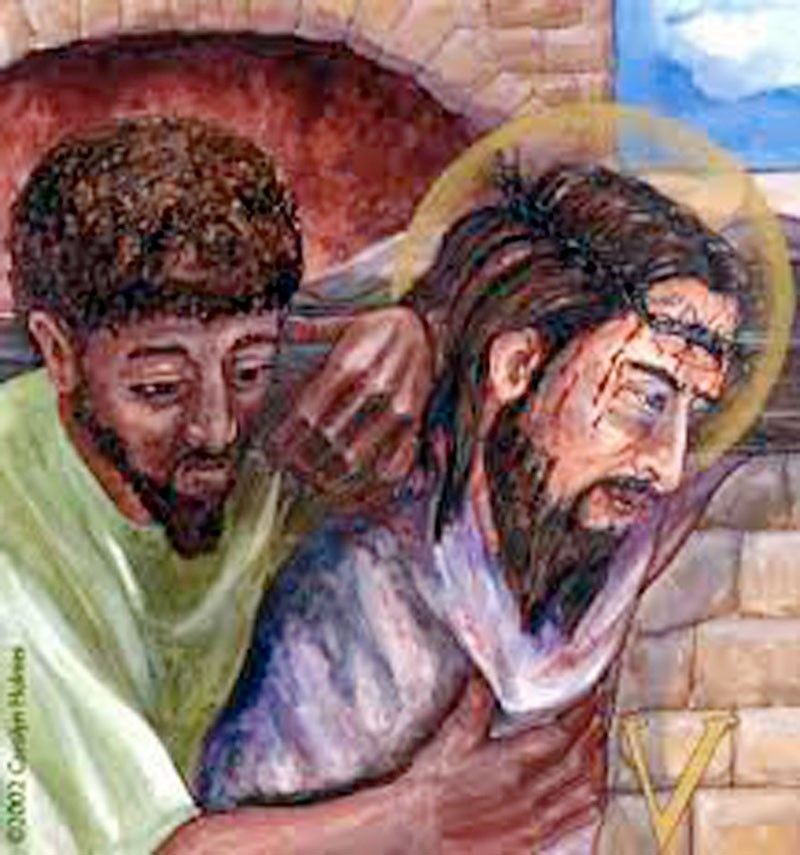Looking for God in our lives


In a Lenten recollection, Fr. Domie Guzman, Society of St Paul SSP, gave a fresh perspective on the events that happened 2,000 years ago. Hopefully, it will draw the blinds, open our minds and come to appreciate the events, more profoundly and always with a deep sense of gratitude.
• The Passion. This event happened in 24 hours. Just in one day, from the afternoon of Holy Thursday until the afternoon of Good Friday. They called it the evening twilight, in reference to the Exodus. It was the turning point in the history of the Jews when they were finally allowed to leave Egypt after years of bondage.
• The ‘cena’ or the Last Supper. Two events were given to this meal. It was called The Day of the Unleavened Bread and The Passover. Two events referred to in the same day, but not the same tradition. If based In the Old Testament —1st Tradition: The unleavened bread referred to the practice of the people of Canaan to thank God for a rich harvest after a long winter. They made cakes without any human adulteration. The Jews continued this custom when they moved to Egypt, eventually ending up as slaves of Pharaoh.
Before the Exodus, Moses added something new — the 2nd Tradition: Aside from the cakes, Moses directed the Jews to slaughter a clean lamb and with its blood, mark every Hebrew door so that they can be spared from the Angel of Death. This was called the Passover.
When Moses finally got Pharaoh to release the Jews, the feast took on another significance: It became a timetable that the Jews followed to leave Egypt en masse.
In the New Testament, Jesus gathered his apostles in the Last Supper and added a third layer or Tradition: His body in the form of the bread and His blood in the form of wine — His great sacrifice. This was Holy Communion of the Sacrament of the Holy Eucharist.
Therefore, the Passion of Christ was not a separate event. It was part of a chain of events where God continued to work in the story of man’s salvation.
Reflection: When you look for God in your lives, don’t focus on one event. Look for the chain of events that link you to God and His divine plan for you.
• The Washing of the Feet. In his gospel, St. John highlighted the washing of the feet with the words “remove the outer garment.” When you take off the outer garment it means the laying down of one’s life. Jesus was already hinting that what he’s doing is a giving of Himself; like what he’s going to do on the Cross. Peter vehemently refused. He said, “You can’t wash my feet, Lord.” Jesus replied, “If I don’t wash you, you won’t have a part in me.”
There were already rich moments in the life of the Lord where He began to work on the Sacraments. In John’s account, verses 14-17, at the Last Supper, Jesus gave a Farewell Discourse. Jesus was telling the apostles that He was going away, that He will send the Holy Spirit and that they should love one another. Until his last moments, Jesus remained a teacher.
Reflection: The Sacraments we celebrate are rooted on the story of the Last Supper. The victory of love and God’s unending love for mankind.
• The Garden in Gethsemane. Gethsemane was the favorite “hangout” of Jesus and the apostles. It was situated a few distance away from Jerusalem. Jerusalem was where Jesus preached, performed miracles, expelled demons, and mingled with the population. In contrast, Gethsemane was less crowded, where Jesus felt no pressure and could wind down and relax.
Gethsemane means “olive press.” The olive press consists of two solid, massive, heavy, circular rocks that are turned laboriously, like wheels, to extract oil from olives. The process is repeated four times:
The first press will yield extra virgin olive oil used for food; the second press, yields oil used for grooming and bathing; the third yields reddish/blackish oil for oil lamps; and the fourth yields oil for polishing and cleaning wood.
Where does the “agony” in the Garden come in? Think of Jesus being grind and pressed like olives several times until they ran dry. In Filipino,“pinisa hanggang wala ng mapisa.” The excruciating pain, the anxiety, grief and feeling of abandonment He must have felt. But Jesus prayed to His Father for courage and strength. At the end of His “agony,” praying toughened Him up so that He had the steel resolve to submit to his arrest.
Reflection: Even in Gethsemane, Jesus already suffered, like olives crushed again and again. What’s left of Him except by the grace of God?
• The Carrying of the Cross. There were two main events that were written down: Weeping women of Jerusalem (not the disciples) and Simon of Cyrene helped Jesus carry the cross.
Jesus’ remark was quite striking. “Why weep for me? Weep for yourselves.” Under the Romans, crucifixion was a regular, daily occurrence in Jerusalem and because of that, a custom emerged where some random women cried for the condemned. Like the crying women in Chinese funerals. These women had no real sympathy for Jesus. They were public mourners.
Another interpretation however, views the women were crying because Jesus, about to die, was leaving no heir. In ancient times, that was considered tragic and a good enough reason to shed tears.
Cyrene is now known as Libya. Simon was a returning Jew from Libya. He was merely visiting relatives when he was pulled by the Roman soldiers to assist Jesus in carrying the cross. Simon knew nothing of Jesus but he was moved by what he saw and experienced. This chance, insignificant encounter became Simon’s point of conversion.
Reflection: This Holy Week, pray for a little of the story of Simon to unfold before you. No matter how fleeting, it can be a point of conversion. That we may figure out and appreciate Jesus in our lives, with deep love and strong faith.



















